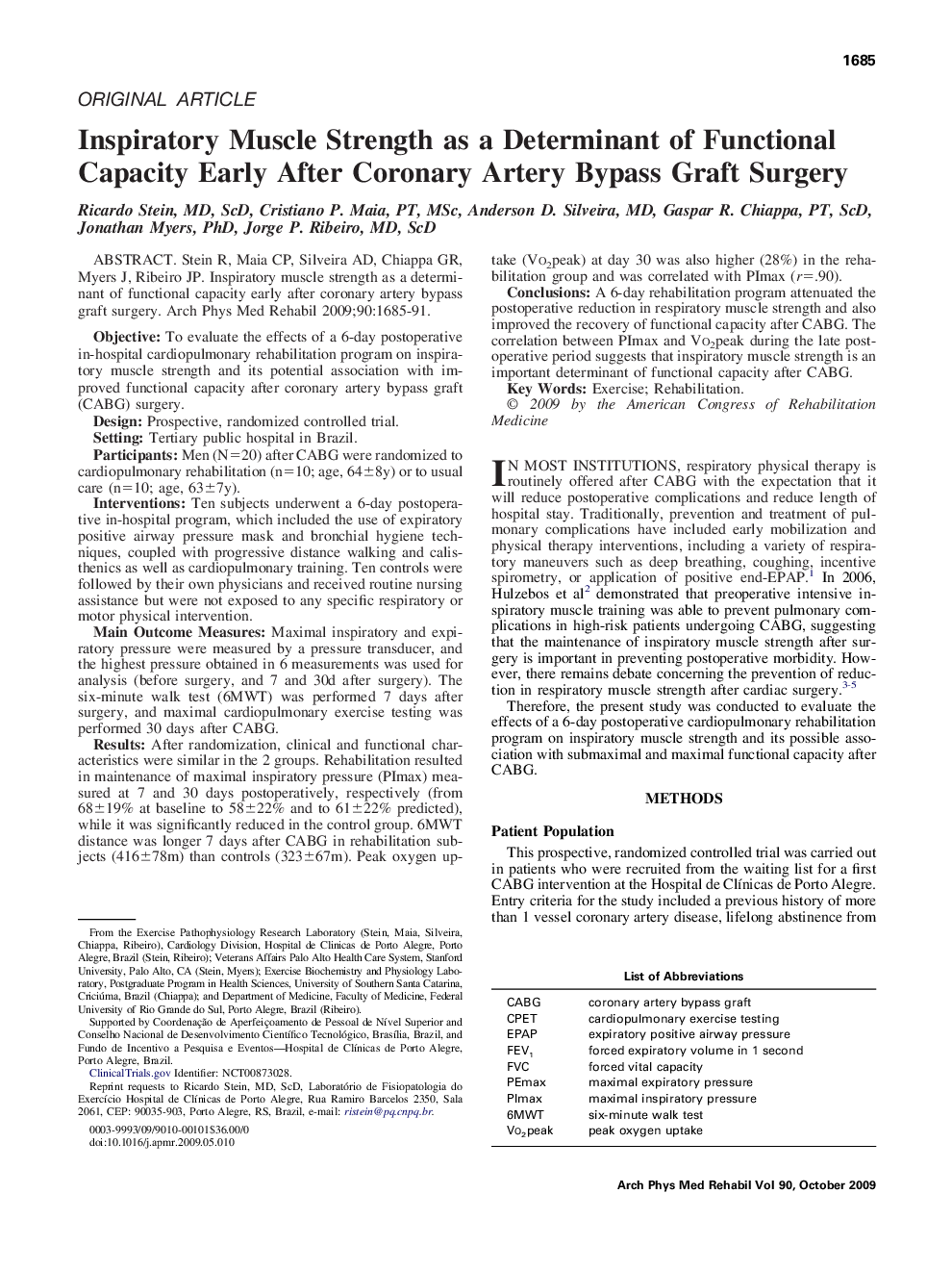| Article ID | Journal | Published Year | Pages | File Type |
|---|---|---|---|---|
| 3451622 | Archives of Physical Medicine and Rehabilitation | 2009 | 7 Pages |
Stein R, Maia CP, Silveira AD, Chiappa GR, Myers J, Ribeiro JP. Inspiratory muscle strength as a determinant of functional capacity early after coronary artery bypass graft surgery.ObjectiveTo evaluate the effects of a 6-day postoperative in-hospital cardiopulmonary rehabilitation program on inspiratory muscle strength and its potential association with improved functional capacity after coronary artery bypass graft (CABG) surgery.DesignProspective, randomized controlled trial.SettingTertiary public hospital in Brazil.ParticipantsMen (N=20) after CABG were randomized to cardiopulmonary rehabilitation (n=10; age, 64±8y) or to usual care (n=10; age, 63±7y).InterventionsTen subjects underwent a 6-day postoperative in-hospital program, which included the use of expiratory positive airway pressure mask and bronchial hygiene techniques, coupled with progressive distance walking and calisthenics as well as cardiopulmonary training. Ten controls were followed by their own physicians and received routine nursing assistance but were not exposed to any specific respiratory or motor physical intervention.Main Outcome MeasuresMaximal inspiratory and expiratory pressure were measured by a pressure transducer, and the highest pressure obtained in 6 measurements was used for analysis (before surgery, and 7 and 30d after surgery). The six-minute walk test (6MWT) was performed 7 days after surgery, and maximal cardiopulmonary exercise testing was performed 30 days after CABG.ResultsAfter randomization, clinical and functional characteristics were similar in the 2 groups. Rehabilitation resulted in maintenance of maximal inspiratory pressure (PImax) measured at 7 and 30 days postoperatively, respectively (from 68±19% at baseline to 58±22% and to 61±22% predicted), while it was significantly reduced in the control group. 6MWT distance was longer 7 days after CABG in rehabilitation subjects (416±78m) than controls (323±67m). Peak oxygen uptake (Vo2peak) at day 30 was also higher (28%) in the rehabilitation group and was correlated with PImax (r=.90).ConclusionsA 6-day rehabilitation program attenuated the postoperative reduction in respiratory muscle strength and also improved the recovery of functional capacity after CABG. The correlation between PImax and Vo2peak during the late postoperative period suggests that inspiratory muscle strength is an important determinant of functional capacity after CABG.
